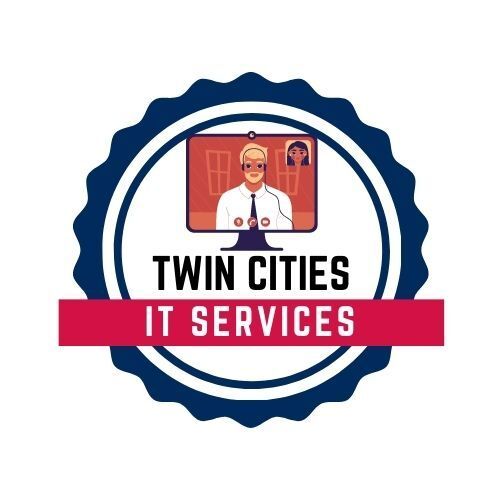Call Us 612-441-2752
VOIP PHONE
VoIP Phone for Business: Best Uses
The world is quickly and gradually adopting new technological breakthroughs, and in order to be competitive, both large and small businesses must keep up with these changes.
We use our phones frequently, and not a day goes by without using them. That's because it's difficult to live without a phone these days. At home, we chat with family or friends. At the same time, at business, we dial into conference calls, speaking to clients or customers.
And given how important phones have become, it makes sense that phone technology has grown along with our changing requirements.
The use of the telephone is waning as newer phone services with more capabilities, and beneficial aspects take their place.
By this time, you might have become aware of Voice over Internet Protocol, or VoIP. If you haven't or want to learn more about it, you should keep reading!
Contact us Now
We will get back to you as soon as possible.
Please try again later.
What Is a VoIP Phone and How Does It Work?
Voice over Internet Protocol (VoIP) technology allows calls to be converted into digital signals and sent over the internet. VoIP phones' popularity has increased significantly over the past several years due to their ease of use, portability, and connectivity.
VoIP phones, commonly called IP phones, have capabilities and features not present in conventional analog telephones.
VoIP phones are hardware-or software-based telephones configured to receive and send phone calls over an IP network using voice over Internet Protocol (VoIP) technology.
The phone transforms incoming digital phone signals from the internet into normal and analog telephony audio into a digital version that can be delivered over the internet.
A VoIP phone is any phone that places and receives calls over the internet instead of conventional landlines.
How Do VoIP Phone Work?
Traditional landlines use analog technology to transmit calls and are hooked into a wall jack. Due to the fact that this technology hasn't advanced much since it was created in the late 1870s, the functions that landlines offer are generally more expensive and less sturdy than those provided by VoIP phones.
The VoIP system operates by converting analog voice signals into digital data using packet-switching technology. In layman's words, this indicates that voice calls made over the Internet are made possible by the conversion of sound waves (i.e., your voice) into digital data.
A VoIP phone operates in the manner described below:
What This Means For Businesses.

Businesses are changing as a result of VoIP phone systems for communications. The development of smartphones has altered how we communicate and gather information in recent years.
It makes sense that businesses are switching from landline calling to VoIP phones due to the accessibility and convenience of internet-based calling and mobile phone use.
Having a phone system that meets clients' expectations for technology is crucial as your business expands. This will also affect how your client views your brand.
Furthermore, the robust capabilities included on your business VoIP phone can help you create a strong impact with customers.
The ability to place voice calls over the internet or other IP networks is a VoIP phone's key feature. Additional features and functionality on VoIP phones could be the following: video calling, text messaging, Bluetooth communication with devices such as speakers, headsets, handsets, and microphones; auto attendant, voicemail with speech-to-text transcription, online faxing, team chat, easy conference call access, records and logs of calls, call recording, call routing, integration with customer relationship management (CRM) and other software and call analytics.
The features and functionality of VoIP products differ between suppliers and services.
How Does VoIP Work With Different Devices?
VoIP is simply turning the analog signals to digital and transferring those signals between sides. This is the basic definition of Voice Over Internet Protocol. But if we want to know how VoIP works with various devices. Here are some of the most popular devices of today that enable the use of VoIP.
Analogue Telephone Adapter: The most popular method of using VoIP is either with a VoIP handset or with an analog telephone adaptor (ATA). Using an ATA, you can utilize your current phone with the VoIP system by connecting a conventional telephone to the internet.
For internet transmission, the ATA transforms analog signals into digital data. To start making VoIP calls, all you need to do is put the lead from your phone into the ATA instead of the wall socket.
Smartphones: The majority of smartphones allow you to use VoIP technology or the internet to make calls. You can configure your mobile phone to the VoIP system using a variety of apps, enabling you to use VoIP even when working remotely.
Computers and laptops: Internet calls can be placed using laptops and desktop computers. Desktop applications like Skype and Google Talk let you make free calls to other program users or charge a nominal rate to dial a different number.
VoIP handset: The idea is pretty similar to regular VoIP handsets. VoIP handsets use an ethernet cable to connect directly to your router, enabling internet-based call-making and receiving. The hardware and software required to operate the phone are already installed on VoIP handsets.
Best Use of VoIP Phones for Businesses
Using VoIP phone services make sense for all businesses, including small businesses. In fact, according to recent research, more than one-third of all organizations currently use a VoIP phone system, with companies with fewer than 50 employees making up the vast majority of those users.
These are some of the uses of VoIP for businesses;
- Give a single number to a lot of people,
- Make calls using a computer, landline, or mobile device.
- It makes outgoing calls using your preferred device.
- It uses an auto attendant, and
- It also keeps track of parameters such as call length, hold periods, waits for durations, and more.

For those with expansion intentions, a toll-free number, for instance, can provide them exposure on a national scale. On the other hand, having a local number might help small businesses feel more connected to their surrounding areas. Even without an actual location, your company can establish a virtual presence in the city.
Benefits of VoIP Phones for Businesses
- Lower Phone Costs for Businesses: Your business will see cheaper operating and calling costs with VoIP phones. This is because it transmits voice data over the internet rather than depending on phone lines. When businesses migrate to VoIP, their phone bill prices fall by roughly 30%, saving them a significant percentage on operating expenses.
- You can reduce costs by not having to keep up with separate networks for phones and data.
- Your business will be able to avoid paying exorbitant landline setup fees because you don't need a PBX (Private Branch Exchange) system, telephone adaptors, hubs, switches, and other hardware.
- You can save money on domestic and international calls by using a virtual number instead of one physically attached to a landline phone.
- A cloud-based communications infrastructure that enables your staff to communicate via phone or video conferencing from any location is simple to use with hosted VoIP. Your company can conserve workplace space with the use of this capacity.
2. Call Quality: VoIP phones capitalize on the advantage of advanced high-definition codecs that vastly improve voice quality. This makes voice over IP sound even better than landline networks.
3.
Simplified equipment: Along with improved audio quality, VoIP is becoming a more attractive choice for small businesses thanks to the cloud.
Businesses that use a cloud-hosted
VoIP phone
system don't have to spend money on equipment or employ IT employees to manage the installation of specialized equipment.
4. Easy to use: VoIP phone systems do not require complex technical support like landlines.
5. Advanced features: VoIP phones can replicate features found in conventional callings, like caller ID, caller holding, call forwarding, and more. Additionally, VoIP phone makes using features like call recording much simpler. Since the call has already been digitalized, adding a feature that records the digital file is quite simple.

Integration of business tools is also provided on VoIP phone services. This enables the integration of your calls with other messaging platforms like chat and email. These capabilities allow you to easily categorize communication by party and period to evaluate a discussion that spanned many mediums.
Every business should ensure that they have access to VoIP phone's more potent conference services, which include video integration.
- Better Security from the Right Provider: With VoIP phones, your business has more access to all features and additional security tools at your disposal. Because of this, a correctly set up VoIP phone system can help you build a more secure system even with flaws in landline and internet-based calls.
Your company can use the following resources with VoIP phones to boost security:
- Encryption from end to end to prevent eavesdropping
- Endpoint protection
- Call apps with two-factor authentication
- Blocking and labeling SPAM calls
You should pick a hosted phone system provider that upholds extremely high data center, network, and product protection standards if you want to guarantee top-notch security.
2. With VoIP phones, employees can work from anywhere: Work flexibility is another game-changing advantage of VoIP. Your workers will be able to work from anywhere as you update the phone system with internet-based calling. As a result, your business has the option to adopt a hybrid model in which some workers work remotely for the entirety of the week.
Suppose your business phone system is hosted in the cloud. In that case, operations can continue as usual if individuals are unable to be in the office due to emergencies, travel, a preference to work from home, or other circumstances. This work-from-home option makes your organization more adaptable.
What Type of Businesses Needs VoIP phones?

The following are some of the businesses that require VoIP phones for voice-over-IP or VoIP telephone to make phone calls:
- Businesses with several locations:
There can only be one physical phone line per extension and office. However, VoIP business phone enables the usage of the same phone system across numerous office locations. The same unified phone system can be provided to all locations using VoIP. Regardless of whether a second site has been opened, manages local offices, or is in charge of the chain of franchises.
2. Automobile Fleets:
For teams that are traveling, VoIP phones provide mobility. They are maintaining team communication while on the road is made easy by voice-over IP if you manage any form of the business fleet.
Your fleet drivers' phones and work tablets can be connected to virtual numbers so that each team stays connected to the network when they are on their regular routes. VoIP phones can help all kinds of corporate fleets, from home service workers to town car drivers that transport executives.
3.
Business Vacation:
When on business, employees frequently continue their work from hotels, airports, and other remote places far from their regular offices. With VoIP phones, these mobile workers can stay in touch and access the same functionality of their business phone as if they were seated at their home workstation. Without the burden of multiple phone lines, VoIP makes it simple for traveling business workers to stay productive and connected while on the go.
4.
Remote Employees:
Business phone numbers are one of the hardest obstacles for a remote workforce to overcome. There is simply no way for remote workers to answer calls connected to their office desk phones. But with VoIP, the problem is solved. Remote workers from any internet-connected computer or device can access a VoIP number.
Employees can easily extend their in-office desk to their home office by installing the VoIP program and logging in. No matter where each coworker is situated, remote employees can continue to be networked with them and make and receive calls at their regular office number.
Final Thoughts
Businesses can benefit from having VoIP phone numbers or virtual phone numbers in addition to having a telephone service that is accessible from any location with an internet connection. These phone numbers can be linked to any device they choose, including mobile phones, home landlines, and even laptop computers. This is because they are not associated with any particular telephone.
Businesses can also decide what kind of number to obtain depending on their objectives.
VoIP is the platform that many service providers use to provide additional communication and collaboration tools like audio and video conferencing.
As a result, you can allocate phone lines, take calls, and manage communications from one dashboard. Additionally, team members who operate from different offices can continue to use the same personal business phone number, regardless of where they answer the phone.
Finally, VoIP serves as the telephony infrastructure for the majority of contemporary corporate phone systems.
Consider the possibilities
Twin Cities IT Services
provides if you're considering upgrading to a VoIP phone system.
We have the cloud communications solutions your business needs to benefit from all that VoIP phone technology offers and switch to a work-from-anywhere culture.
Even better, we take care of cloud onboarding and migration for you. To find out more, contact us.
About Us
We have been providing managed IT services for companies for years.
Contact info
2940 Oakland Ave, Minneapolis, Minnesota, United States

